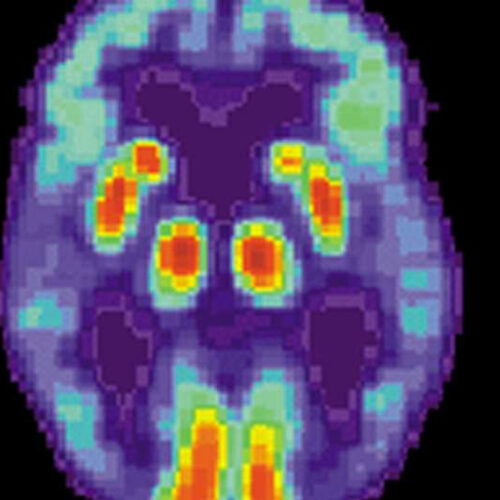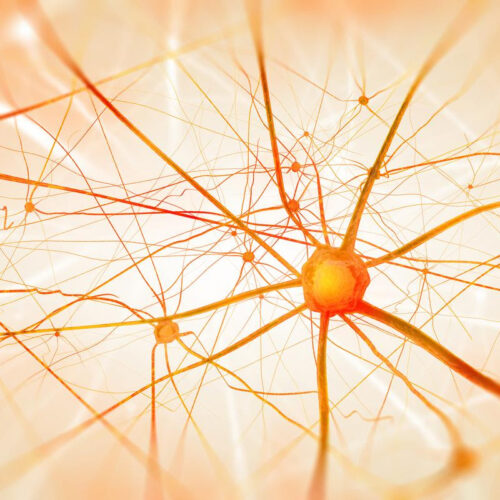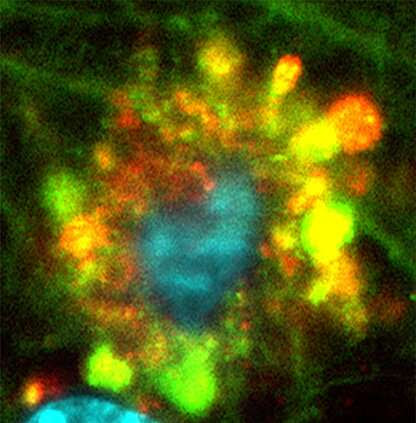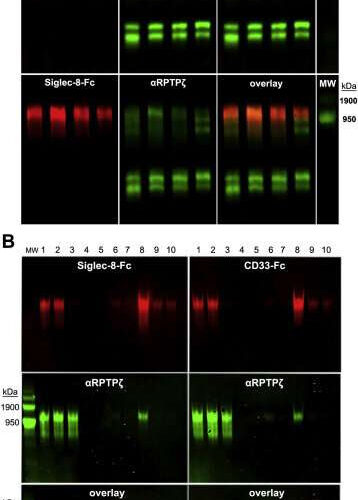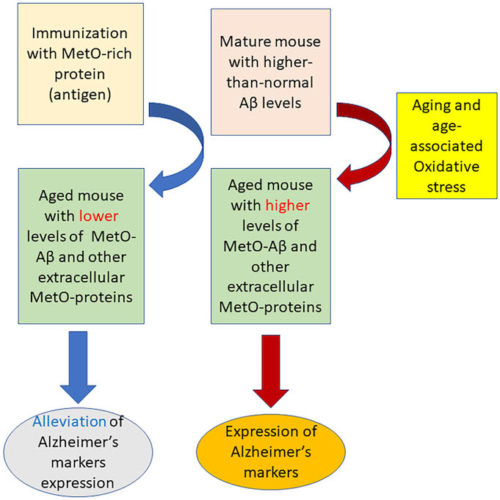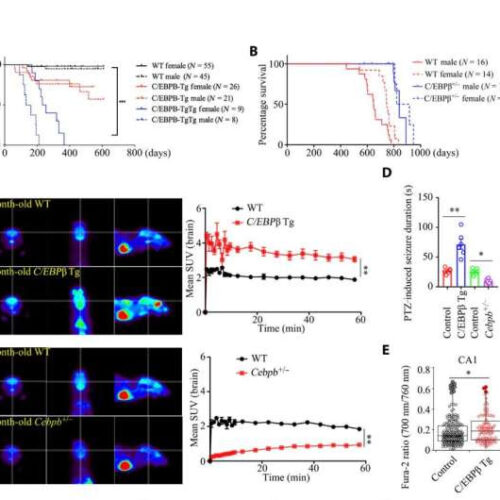by Imperial College London PET scan of a human brain with Alzheimer’s disease. Credit: public domain The research uses machine learning technology to look at structural features within the brain, including in regions not previously associated with Alzheimer’s. The advantage of the technique is its simplicity and the fact that it can identify the disease...
Tag: <span>Alzheimer’s disease</span>
Dropping acidity raised as an overlooked culprit in Alzheimer’s disease
By Nick Lavars June 06, 2022 Scientists have shown how declining acidity levels in lysosomes can cause neuronal damage associated with Alzheimer’s Depositphotos Much research into Alzheimer’s focuses on the buildup of brain plaques as a primary cause, but the case is far from closed, particularly in the eyes of a research team at New...
Study links target protein for diabetes drug to reduced risk of Alzheimer’s disease
by Karolinska Institutet Credit: Pixabay/CC0 Public Domain Mechanisms associated with a particular diabetes drug can also help to protect against Alzheimer’s disease, a study by researchers at Karolinska Institutet in Sweden and published in Neurology reports. The results indicate that the drug’s target protein could be an interesting candidate for the treatment of Alzheimer’s disease. Alzheimer’s disease...
Evidence mounts for alternate origins of Alzheimer’s disease plaques
by NYU Langone Health Three images, as seen by fluorescent microscopy, show flower-like formations (at decreasing resolution) of autophagic vacuoles in neurons of Alzheimer’s disease mouse. Credit: Springer-Nature Publishing. A breakdown in how brain cells rid themselves of waste precedes the buildup of debris-filled plaques known to occur in Alzheimer’s disease, a new study in...
Researchers link sugar-studded protein to Alzheimer’s disease
by Johns Hopkins University School of Medicine The same glycoform of RPTPζ carries CD33 and Siglec-8 ligands. A, equal aliquots of human cerebral cortex total protein extract from four donors (numbered) were resolved on replicate composite agarose–acrylamide gels and blotted to PVDF. One blot (upper panels) was double-label probed with CD33-Fc (red) and anti-RPTPζ (green)...
Study: Early Warning System for Alzheimer’s Disease?
The accumulation of amyloid-beta and tau proteins in the brain is linked to Alzheimer’s disease, and now research shows that such accumulation can disrupt connections between brain structures important for memory. The new study, led by investigators at Harvard Medical School and Massachusetts General Hospital and published in PNAS, revealed that these disrupted connections were present years before...
Study preserves memory in mice, offering promising new basis for active immunization against Alzheimer’s disease
UNIVERSITY OF KANSAS IMAGE: IN A SERIES OF TESTS, KU RESEARCHERS ASSESSED THE MEMORY OF INJECTED MICE AGAINST SIMILAR MICE THAT DIDN’T RECEIVE THE CORN-BASED METHIONINE SULFOXIDE. CREDIT: SMITH, ET AL. LAWRENCE — During experiments in animal models, researchers at the University of Kansas have discovered a possible new approach to immunization against Alzheimer’s disease (AD)....
The study identifies a therapeutic target for Alzheimer’s disease, revealing strategies for preventing or slowing disease progression
About 11% of the U.S. population 65 and older has been diagnosed with Alzheimer’s disease (AD), the most common form of dementia that results in memory loss and cognitive impairment, according to the Alzheimer’s Association. And the World Health Organization predicts the number of people living with Alzheimer’s will grow by millions each year. Despite...
Alzheimer’s disease: The identification of 75 genetic risk factors brings new insights
INSERM (INSTITUT NATIONAL DE LA SANTÉ ET DE LA RECHERCHE MÉDICALE) Identifying genetic risk factors for Alzheimer’s disease is essential if we are to improve our understanding and treatment of it. Progress in human genome analysis along with genome-wide association studies[ are now leading to major advances in the field. Researchers in Europe, the US and...
C/EBPβ/AEP pathway dictates both Alzheimer’s disease and longevity: Study
by Chinese Academy of Sciences Neuronal C/EBPβ escalation shortens the life span of mice, leading to neural excitation. Credit: SIAT Cognitive decline during normal aging is exacerbated in neurodegenerative disease including Alzheimer’s disease (AD). While it is not yet known exactly what causes AD, there are a number of risk factors that make a person...

